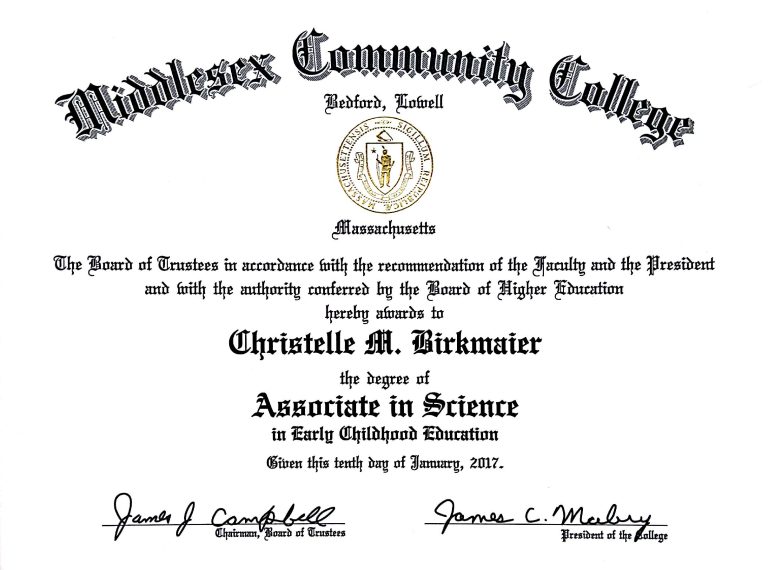How to Start a Preschool in a Church: A Comprehensive Guide

To start a preschool in a church, you need to follow these steps: research your local regulations, secure necessary permits and licenses, create a curriculum and teaching plan, and market your preschool to the community. (Introduction) Starting a preschool in a church can be a fulfilling and rewarding venture.
Not only does it provide valuable educational opportunities for young children, but it also serves as a way to connect with the local community. If you’re considering opening a preschool in a church, it’s important to carefully navigate the process and ensure you meet all the necessary requirements.
From researching local regulations to creating a curriculum, there are several steps involved in establishing a successful preschool in a church setting. By following these steps and effectively marketing your preschool, you can create a welcoming and enriching environment for children within the church community and beyond.
Assessing Your Church’s Readiness
Starting a preschool in a church is a significant endeavor that requires careful assessment of various factors to ensure success. Before embarking on this journey, it is essential to evaluate your church’s readiness. This involves understanding the community’s child care needs, evaluating church space and location suitability, as well as assessing the financial and manpower resources availability.
Understanding The Community’s Child Care Needs/
When considering starting a preschool in your church, it is vital to understand the child care needs of the community. This involves conducting a thorough analysis of the demographic profile, including the number of families with young children and the demand for quality early childhood education. Additionally, reaching out to local parents, conducting surveys, and engaging with community organizations can help gather valuable insights. By closely studying the childcare needs of your community, you can tailor your preschool program to meet those requirements and establish a strong foundation.
Evaluating Church Space And Location Suitability/
The physical space within your church plays a crucial role in establishing a preschool. It is necessary to evaluate whether your church has adequate rooms, classrooms, and outdoor areas that meet the safety and regulatory requirements for a preschool. Assessing the availability of amenities such as restrooms, play areas, and appropriate furniture is also essential. Furthermore, evaluating the location’s accessibility and proximity to the target demographic helps ensure convenience for parents and creates a favorable environment for the preschool. By carefully considering the suitability of your church’s space and location, you can create a nurturing and engaging learning environment for the children.
Assessing The Financial And Manpower Resources Availability/
Before embarking on the journey of starting a preschool, it is crucial to assess the financial and manpower resources available within your church community. Conducting a financial analysis, including estimating the initial investment required, ongoing operational expenses, and potential sources of funding or support, is essential. Additionally, evaluating the availability of dedicated personnel, such as teachers, administrators, and support staff, is necessary to ensure the smooth operation of the preschool. By thoroughly assessing the financial and manpower resources, you can establish a sustainable preschool that provides high-quality education.
First Steps To Preschool Establishment
Starting a preschool in a church is a rewarding endeavor that requires careful planning and preparation. Begin by selecting a suitable space, creating a curriculum, and obtaining the necessary licenses and permits. With dedication and commitment, you can establish a thriving preschool that serves the needs of the community.
Establishing A Vision And Mission For The Preschool
When starting a preschool in a church, establishing a clear vision and mission is vital. Your vision and mission statements will guide every aspect of your preschool, from curriculum development to staff hiring, and they will serve as the foundation of your educational philosophy.
So, how do you create a compelling vision and mission statement for your preschool?
1. Define your values: Take some time to reflect on the core values that you want to instill in your preschool. These values could be rooted in Christian principles or universal ideals such as kindness, respect, and inclusivity.
2. Craft your vision statement: Your vision statement should provide a concise and inspiring overview of what you want to achieve with your preschool. It should be forward-looking and aspirational, stating the ultimate goal you want to reach.
3. Develop your mission statement: Your mission statement should outline how you plan to accomplish your vision. It should highlight the specific strategies and approaches you will use to provide a high-quality preschool education in a church setting.
By establishing a vision and mission for your preschool, you will set a clear direction for your institution and attract families who share your values and educational goals.
Legal Considerations And Obtaining Necessary Licenses
Before opening a preschool in a church, it’s important to navigate the legal process and obtain the necessary licenses and permits to operate legally and ensure the safety and well-being of the children in your care.
Here are the key legal considerations you need to address:
- Determine the legal structure: Decide whether you want to operate as a nonprofit organization, for-profit business, or as part of the church’s existing structure.
- Research local regulations: Familiarize yourself with the licensing requirements and regulations for preschools in your area. They may vary depending on the state or country you are located in.
- Obtain the necessary permits and licenses: Apply for the required permits and licenses, such as a business license, health and safety inspection, and zoning permits.
- Insurance coverage: Secure appropriate insurance coverage to protect your preschool, staff, and children in case of accidents or unforeseen events.
By addressing the legal considerations and obtaining the necessary licenses, you will establish your preschool as a credible and trustworthy institution, giving families confidence in your operation.
Formulating Policies And Operational Guidelines
Formulating comprehensive policies and operational guidelines is crucial for the smooth functioning of your preschool. This ensures that everyone involved, including staff, parents, and children, understand the expectations and procedures in place.
Consider the following when formulating your policies and guidelines:
- Admissions policy: Clearly define the criteria and requirements for enrolling children in your preschool.
- Health and safety procedures: Implement protocols to maintain a safe and healthy environment for children, including emergency response plans and sanitation practices.
- Curriculum guidelines: Create guidelines for curriculum development, outlining the educational objectives, teaching methodologies, and assessment strategies.
- Discipline and behavior management: Establish policies that promote positive behavior and outline the consequences for inappropriate conduct.
- Parent communication: Define how you will keep parents informed about their child’s progress, upcoming events, and other relevant information.
Having well-defined policies and operational guidelines in place fosters consistency and efficiency in your preschool’s operations, creating a positive learning environment for all involved.
Crafting Your Preschool Curriculum
Learn how to effectively start a preschool in a church by crafting a curriculum that engages young minds. Develop an educational plan tailored to the unique needs of preschoolers, fostering an environment of learning, growth, and spiritual development.
The curriculum you develop for your church-based preschool is crucial in shaping the educational experience of the children in your care. By carefully crafting your preschool curriculum, you can provide a nurturing environment that fosters both academic and spiritual growth. In this section, we will explore the importance of age-appropriate curriculum development, creating a balance between secular and spiritual education, and incorporating play-based learning and modern teaching methods. Let’s dive in!
Importance Of Age-appropriate Curriculum Development
Creating an age-appropriate curriculum is essential to meet the developmental needs of young learners. Preschoolers have specific cognitive, social, emotional, and physical capabilities, and your curriculum should align with their abilities and interests. By tailoring your curriculum to their age, you can engage children in meaningful learning experiences that promote their overall development. Here are a few key considerations for age-appropriate curriculum development:
- Identify learning objectives that are relevant to preschoolers.
- Design activities that encourage hands-on exploration and discovery.
- Use visual aids, manipulatives, and sensory materials to enhance learning.
- Provide opportunities for repetition and reinforcement of concepts.
- Integrate diverse learning styles to cater to individual differences.
Creating A Balance Between Secular And Spiritual Education
As a preschool operating within a church, it is important to strike a balance between secular and spiritual education. Your curriculum should reflect the values and beliefs of your religious community while also providing a well-rounded education. Here are some strategies to achieve this balance:
- Fuse religious teachings into lessons, stories, and activities.
- Incorporate Bible themes and scriptures into daily routines.
- Teach moral values, character development, and empathy through diverse curriculum areas.
- Expose children to different cultures and religions to foster tolerance and understanding.
Incorporating Play-based Learning And Modern Teaching Methods
Play-based learning and modern teaching methods can enhance the preschool experience by promoting creativity, critical thinking, and problem-solving skills. Here’s how you can incorporate these methods into your curriculum:
| Play-Based Learning: | Design learning centers that encourage independent exploration. |
| Provide open-ended materials for imaginative play. | |
| Offer opportunities for cooperative play and social interaction. | |
| Modern Teaching Methods: | Utilize technology tools, such as educational apps and interactive whiteboards. |
| Incorporate project-based learning to promote critical thinking and problem-solving. | |
| Implement hands-on experiments and real-life experiences to make learning meaningful. |
Crafting a well-rounded preschool curriculum that encompasses age-appropriate developmental goals, spiritual teachings, and engaging teaching methods is essential for the success of your church-based preschool. By keeping these factors in mind, you can create a learning environment that nurtures the holistic growth of each child in your care.
Church Preschool Staffing Essentials
Starting a preschool in a church requires careful consideration when it comes to staffing. Your staff members will play a crucial role in shaping the minds and hearts of young children. Therefore, it’s important to recruit qualified early childhood educators, provide them with proper training and ongoing professional development, and create a safe and nurturing environment for the children in your care.
Recruiting Qualified Early Childhood Educators
In order to ensure the highest quality of education and care for the children in your preschool, it’s essential to recruit qualified early childhood educators. These educators are not only knowledgeable about child development and learning, but also possess the necessary skills to engage and stimulate young minds.
When recruiting early childhood educators, consider the following:
- Require relevant qualifications such as a degree in early childhood education or a related field.
- Look for candidates who have experience working with young children and can provide references to support their qualifications.
- Assess their communication and interpersonal skills as they will be vital in building positive relationships with both the children and their parents.
- Consider their ability to create a nurturing and inclusive environment that fosters the emotional, social, and cognitive development of each child.
Staff Training And Continuous Professional Development
Once you have recruited qualified early childhood educators, it’s important to provide them with the training they need to excel in their roles. In addition to initial training, continuous professional development ensures that your staff stays up-to-date with the latest research and best practices in early childhood education.
To ensure staff training and continuous professional development, consider the following:
- Offer regular training sessions on topics such as child development, curriculum planning, behavior management, and health and safety.
- Encourage your staff to attend relevant workshops, conferences, and seminars to enhance their knowledge and skills.
- Provide opportunities for collaboration and sharing among staff members, such as team meetings and professional learning communities.
- Consider implementing a mentorship program where experienced educators can support and guide new hires.
Creating A Safe And Nurturing Environment For Children
In a church preschool, it’s important to create a safe and nurturing environment where children can thrive and grow. This includes both physical and emotional safety.
To create a safe and nurturing environment, consider the following:
- Ensure that your preschool meets all the necessary safety regulations, including childproofing measures, secure entrances and exits, and regular safety inspections.
- Implement policies and procedures to promote positive behavior and manage challenging behaviors effectively.
- Foster a sense of belonging and inclusion by celebrating diversity and promoting respect and acceptance among children and staff members.
- Encourage open communication with parents, sharing important information about their child’s day and being responsive to their concerns and feedback.
Marketing Your Church’s Preschool
When it comes to starting a preschool in your church, marketing plays a crucial role in raising awareness and reaching out to potential parents and students. With effective promotion strategies, you can ensure that your church’s preschool becomes the go-to choice for parents in your community.
Strategies For Effective Preschool Promotion Within The Community
To effectively promote your church’s preschool within the community, consider implementing the following strategies:
- Develop a strong brand identity: Creating a distinctive brand identity for your preschool will help you stand out from the competition. Design a logo that reflects your church’s values and ideals. Adorn your website, brochures, and social media profiles with your logo, reinforcing the brand identity across all touchpoints.
- Offer referral incentives: Word-of-mouth marketing is incredibly powerful, especially within close-knit communities. Encourage parents to refer your preschool to their friends and family by offering incentives such as discounts on tuition fees or additional perks for successful referrals. This will create a ripple effect and generate positive buzz about your preschool.
- Partner with local businesses: Forge fruitful partnerships with local businesses such as toy stores, children’s clothing boutiques, and family-friendly venues. Collaborate on events, offer reciprocal promotions, or distribute promotional materials at their establishments. This collaboration will not only expand your reach but also strengthen your ties with the community.
- Engage parents with newsletters: Regularly send out newsletters to parents who have expressed interest in your preschool. Use the newsletter as a platform to showcase success stories, highlight upcoming events, and share valuable resources related to early childhood education. Include compelling visuals and maintain a conversational tone to keep parents engaged.
- Organize community events: Hosting community events is a fantastic way to showcase your church’s preschool and connect with prospective parents. Consider organizing family-friendly events such as fun fairs, open houses, or workshops on parenting topics. These events provide opportunities for parents to interact with staff, explore the preschool facilities, and gain firsthand experience of the loving environment you offer.
Utilizing Online Platforms And Social Media
In today’s digital age, it is essential to leverage online platforms and social media to market your church’s preschool effectively. Here are some strategies to make the most of these digital tools:
- Create an engaging website: Develop a user-friendly, visually appealing website that provides all necessary information about your preschool, such as programs offered, faculty profiles, and testimonials from happy parents. Include captivating images and videos to give visitors an authentic feel for your preschool’s environment.
- Optimize for local search: Ensure your website is optimized for local search by incorporating relevant keywords and location-based meta tags. This will increase your chances of appearing in local search results when potential parents are looking for preschool options in your area.
- Engage on social media: Create profiles on popular social media platforms such as Facebook, Instagram, and Twitter. Regularly share updates, photos, and videos of preschool activities, celebrations, and student achievements. Encourage parents to engage with your posts by commenting, sharing, and tagging their friends, thereby expanding your reach organically.
- Utilize online advertising: Consider running targeted online advertising campaigns on platforms like Google Ads and Facebook Ads. By defining your target audience based on factors such as age, location, and interests, you can ensure that your ads reach parents who are most likely to be interested in your preschool.
Hosting Open Days And Engaging Prospective Parents
Hosting open days is an excellent opportunity to showcase your church’s preschool to prospective parents. Here are some tips to make your open days engaging and memorable:
- Create an inviting atmosphere: Decorate the preschool to create a warm and welcoming environment that reflects your church’s values. Ensure that each classroom is set up attractively, with engaging activities and displays that showcase the creative and educational aspects of your curriculum.
- Prepare informative materials: Provide brochures, flyers, and information packets that highlight the unique selling points of your preschool. Include details about your curriculum, extracurricular activities, teacher qualifications, and any special programs or features that set your preschool apart from others.
- Offer guided tours: Assign friendly and knowledgeable staff members to lead guided tours for interested parents. During the tour, highlight the various facilities, showcase student artwork, and allow parents to observe ongoing classroom activities.
- Arrange meet-and-greet sessions: Set up opportunities for prospective parents to meet with the teaching staff, allowing them to ask questions about the curriculum, teaching methods, and the school’s overall philosophy. This personal interaction will help build trust and establish a connection with the parents.

Credit: mybrightwheel.com
Frequently Asked Questions Of How To Start A Preschool In A Church
How Many Kids Can You Babysit Without A License Texas?
In Texas, you can babysit any number of kids without a license as long as it’s done in the child’s home.
How Many Hours Can A Child Be In Daycare In Texas?
A child can be in daycare for up to 10 hours a day in Texas.
Will Texas Give A Grant To Start A Daycare?
Texas may offer grants to start a daycare. Contact local organizations or government agencies for information and requirements.
What Are The Requirements To Work At A Daycare In Texas?
To work at a daycare in Texas, you need to meet certain requirements. These include a high school diploma or GED, a completed background check, and completion of CPR and first aid training. Additionally, you must be at least 18 years old and have a passion for working with children.
Conclusion
Starting a preschool in a church can be a rewarding and fulfilling venture. By following the steps outlined in this blog post, you can lay the foundation for a successful and thriving preschool program. From identifying your target audience to creating a curriculum, each step is crucial in ensuring the success of your preschool.
By combining your passion for education with the support of the church community, you can create a nurturing and enriching environment for young children to grow and learn. Start your journey today and make a positive impact in the lives of children and families in your community.

Emma combines her teaching experience with her writing skills to produce engaging and informative content. She covers a range of topics, from classroom management to innovative teaching techniques.






